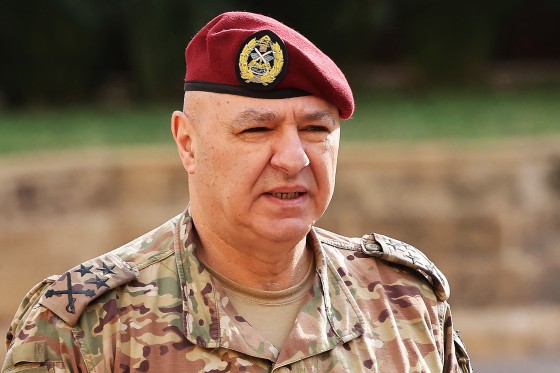
Army leader Joseph Aoun was voted head of state by Lebanon’s parliament on Thursday, occupying the vacant presidency with a general who is supported by the United States and demonstrating the waning influence of the Iran-backed Hezbollah organization following its catastrophic conflict with Israel.
With Shiite Muslim Hezbollah severely damaged from the previous year’s battle and its Syrian ally Bashar al-Assad overthrown in December, the result demonstrated changes in the balance of power in Lebanon and the larger Middle East.
Additionally, it signaled a resurgence of Saudi power in a nation where Iran and Hezbollah long since overshadowed Riyadh’s role.
Lisa Johnson, the U.S. ambassador to Lebanon, expressed her happiness at Joseph Aoun’s election as president on Thursday, which filled the seat after more than two years of vacancy.
Aoun was chosen during Thursday’s session of the Lebanese parliament, which Johnson and other foreign envoys had attended.
France’s Foreign Ministry stated on Thursday that the election of a new Lebanese president marks a turning point for the nation and that a new cabinet capable of implementing reforms must now be appointed.
A new administration will need to implement the changes required for Lebanon’s economic recovery, stability, security, and sovereignty, according to Foreign Ministry spokesperson Christophe Lemoine. France also calls on all Lebanese political leaders and authorities to strive toward these objectives.
Since Michel Aoun’s tenure ended in October 2022, the presidency—reserved for Maronite Christians in Lebanon’s sectarian power-sharing system—has been empty due to profoundly divided groups that cannot agree on a candidate who can get enough votes in the 128-seat parliament.
Hezbollah legislators and the Amal Movement, a Shiite ally, supported Aoun, who received 99 votes in a second round after falling short of the 86 votes required in the first round, according to Parliament Speaker Nabih Berri.
According to three Lebanese political insiders, Aoun gained momentum on Wednesday when Suleiman Frangieh, Hezbollah’s long-favored candidate, withdrew and vowed to back the army commander. Additionally, French and Saudi envoys traveled about Beirut, advocating his victory in talks with MPs.
The international world has made it quite apparent that they are prepared to assist Lebanon, but that requires a president, a government, Prior to the vote, Christian legislator Michel Mouawad, who opposed Hezbollah and supported Aoun, told Reuters. He continued, “We did receive a message of support from Saudi.”
In a nation that hasn’t had a head of state or a fully functional cabinet since Aoun’s departure, his election is a first step toward rebuilding government institutions.
With its economy still recovering from a catastrophic financial meltdown in 2019, Lebanon is in desperate need of foreign assistance to recover from the conflict, which the World Bank estimates cost the nation $8.5 billion.
In order to form a new cabinet, the new president of Lebanon must hold talks with MPs and select a Sunni Muslim prime minister. This process might take a long time because different factions vie for ministerial responsibilities.
Washington and Paris mediated a ceasefire between Hezbollah and Israel in November, and Aoun played a crucial role in securing it. As Hezbollah and Israeli soldiers withdraw, the arrangements call for the Lebanese military to go into south Lebanon.
In his first speech to parliament since his election, he assured members Thursday that he would seek to guarantee the state’s unique right to bear arms.
His remarks were seen in part as a reference to Hezbollah’s armament, about which, as the former army commander, he had refrained from making public remarks.
Since 2017, the 60-year-old Aoun has led the Lebanese army, which is supported by the United States. As part of a long-standing U.S. policy aimed at bolstering state institutions to limit Hezbollah’s power, U.S. aid to the army continued during his administration.
